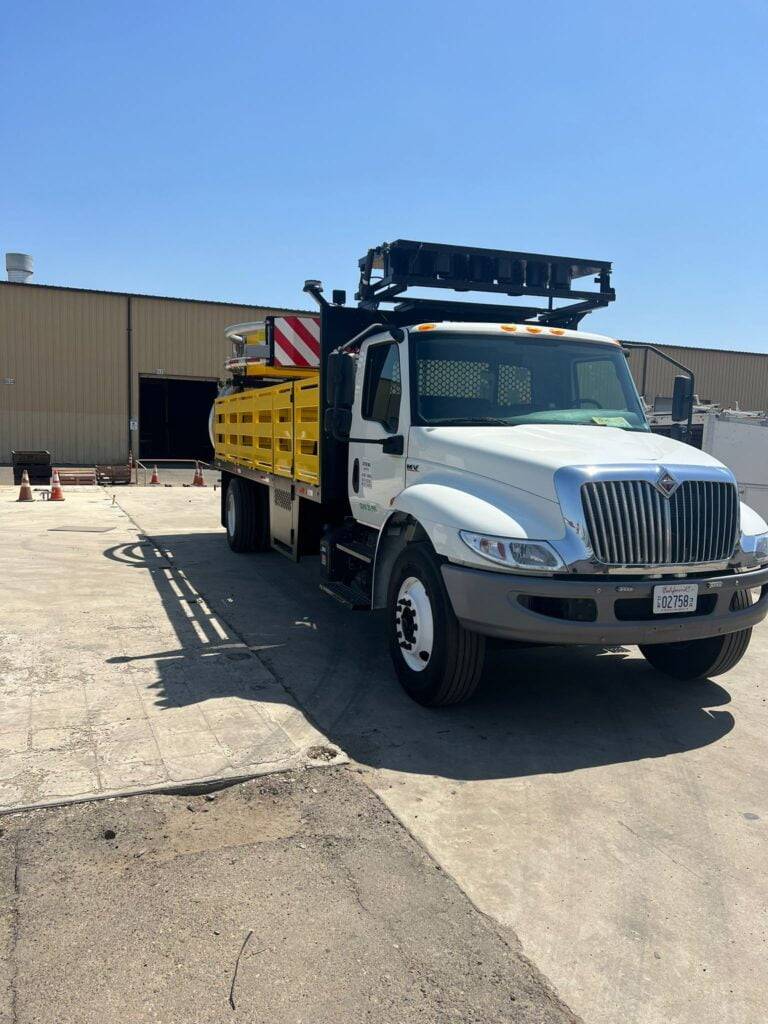Truck-mounted attenuators (TMAs) are absolutely essential for safety in sites utilized for highway construction and maintenance. These devices are designed especially to absorb collision force, protecting workers and drivers. Like any piece of equipment, TMAs must be used within their authorized limits to be most effective. Preventing TMA overloading is critical, as overloading causes notable wear and tear, affects performance, and increases repair demand. This guide explores the impact of overloading on TMA performance, maintenance requirements, and strategies to avoid these issues.

Explaining TMA Overloading
Overloading occurs when a TMA is strained, weighted, or pressured beyond its designed capacity. TMAs are meticulously built with specific weight limits to optimize impact energy absorption. Using a TMA in settings it wasn’t meant for or overloading the TMA vehicle substantially strains the device, leading to early wear and increased maintenance needs.
Effects of Overloading on TMA Performance
- Reduced Impact Absorption: Overloading can limit the TMA’s capacity for proper compression and energy absorption during collisions, reducing its effectiveness in protecting workers and drivers.
- Increased Component Stress: Overloading stresses components such as hydraulic systems, mounting brackets, and cushioning materials, leading to cracks, material fatigue, and critical failures.
- Compromised Vehicle Handling: Excess weight reduces the mobility of the TMA vehicle, raising safety risks as drivers struggle to maneuver in work zones.
- Increased Braking Distance: Overloading impacts the vehicle’s stopping distance, creating hazardous conditions in high-speed work zones and increasing the risk of rear-end collisions.
The Impact of Overloading on Maintenance
- Frequent Repairs: Overloading accelerates wear on mounting hardware, hydraulic arms, and energy-absorbing cartridges, increasing downtime and repair costs.
- Structural Failures: Prolonged overloading can compromise the TMA’s structural integrity, leading to failures during impacts and higher replacement costs.
- Inspection Challenges: Faster component degradation complicates compliance with safety standards such as MASH, risking fines and vehicle grounding.
Strategies for Preventing TMA Overloading
- Adhere to Weight Limits: Ensure the total weight of the TMA truck, including loads, does not exceed manufacturer-recommended limits.
- Conduct Regular Inspections: Routine checks of hydraulic systems, energy-absorbing components, and mounting points help detect early signs of strain.
- Train Drivers and Managers: Educate staff on the risks of overloading and proper weight distribution for safe handling and operation.
- Use Appropriate Equipment: Avoid using TMA trucks for tasks they aren’t designed for, such as heavy haulage or material movement.
- Upgrade to High-Capacity TMAs: For challenging work environments, consider TMAs built to handle higher impact pressures and heavier loads.
Overloading a truck-mounted attenuator compromises safety, accelerates wear, and shortens its lifespan. Adhering to maintenance schedules, respecting weight limits, and training drivers can help prevent overloading and ensure that TMAs remain reliable and effective. Preventing overloading saves lives, time, and money while maintaining optimal safety standards. If you would like to learn how to get started feel free to contact us via the website.
For your TMA Repair and Maintenance, contact Western Highways Traffic Safety HERE!




